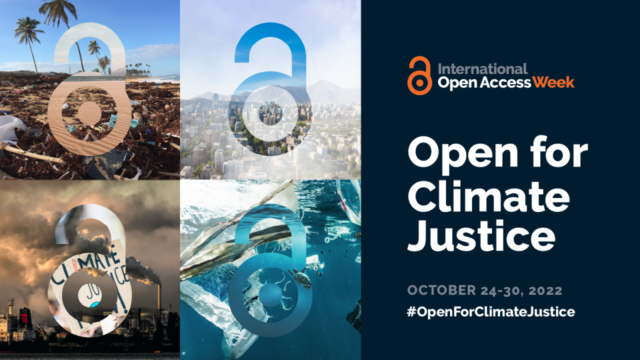
Clarifying knowledge withholding, hiding, and hoarding
This article is part of a series on knowledge withholding, hiding, and hoarding.
The second meeting of the KMGN Research Community earlier this year looked at knowledge hiding research. In regard to the terminology around knowledge hiding and hoarding, concerns were expressed by Stuart French and others about the emotive connotations of the term “knowledge hiding.” This is because such language suggests a deliberate intention to not share knowledge, when there could be organizational constraints that lead a person to choose to not share their knowledge. In response, I advised that the less emotive term “knowledge withholding” is also being used in a number of papers.
Related to this, a newly published paper1 reports the findings of a systematic review that has sought to clarify the current research knowledge base around the concepts of knowledge withholding, hiding, and hoarding, and also the additional identified behaviors of knowledge-sharing hostility, knowledge contribution loafing, and knowledge disengagement. The concept of knowledge withholding is seen as an overall umbrella concept under which the other concepts sit. The study also provides recommendations to guide future research.
For their systematic review, researchers Gonçalves, Curado, and Oliveira used a protocol based on the PRISMA guidelines2. The review covered articles published between 2000 and 2021. After a keyword search and the application of inclusion criteria, 84 research articles and six conceptual articles were identified for content analysis. The results show exponential growth in knowledge withholding-related research in recent years, with particular significance in the three years up to 2021.
Theoretical basis
The results of Gonçalves and colleagues study show that 41% of the reviewed articles address the social exchange theory as a theoretical background for knowledge withholding research, bridging knowledge hiding and knowledge hoarding. The social exchange theory addresses social behavior through economic principles of cost-benefits in social sharing, resulting in an analysis of risks and benefits. The theory, while more focused on the economic rather than psychological aspects of social exchange, is the most adopted perspective used in knowledge withholding research, given its discussion of emergent properties and the anticipation of benefit in the exchange. Such a perspective supports a view of knowledge as a source of power.
Similarly, 18% of the research papers use the conservation of resources theory for both knowledge hiding and knowledge hoarding. The conservation of resources theory explains the human motivation to engage in behaviors that drive the conservation or the pursuit of new resources when psychological stressors are at play. The approach of psychological ownership of knowledge was found in 11% of the papers, paving the way for research focused on defensive or territorial behaviors towards a sense of property protection.
Building on the psychosocial aspects of knowledge results also shows a focus on both self-determination theory (7%) and social learning theory (8%) driving knowledge withholding research. Given the psychological needs for competence, autonomy, and social relations as part of intrinsic motivations that drive engagement to action and imitation as a process of learning through socialization, the two theoretical perspectives drive research considering both the supervision role and psychological safety importance in knowledge hiding behavior.
Considering the social exchange theory focus on the importance of communication and mutual gains, findings are consistent with the social nature of tasks and the psychological meaning behind knowledge. Creativity and innovation appear in 15.6% of the articles, bridging theoretical rational au pair with knowledge creation as a socially driven cycle.
Knowledge withholding constructs
Considering overall knowledge withholding-related phenomena, most papers address the knowledge withholding concept of knowledge hiding. Given the conceptual evolution of such a multidimensional construct, Gonçalves and colleagues argue that the higher prevalence of research focused on this knowledge withholding-related construct happens due to its conceptual development.
Knowledge hoarding, while scarcer in the sample (7.7%), is also related to discussions of its robustness as a phenomenon. Nevertheless, the covered papers show several instances where overlapping constructs operate with linguistic differences – in particular between knowledge hiding and knowledge hoarding, and knowledge hiding and knowledge withholding. For example, one study discusses knowledge hoarding as the intentional concealment of knowledge, even upon request. Such rationale, in turn, presents a clash of overlapping definitions commonly attributed to knowledge hiding.
Other positions on different knowledge withholding-related constructs consider hostility toward sharing knowledge. Results also show no evidence of a specific agenda shaping or justifying the growth in knowledge withholding-related phenomena in recent years. Gonçalves and colleagues argue, however, that the progressive awareness of individual-level and organizational-level consequences resulting from knowledge withholding is driving the recent growth of empirical works – an argument reflected in the practical implications of most empirical works found in the sample.
Regardless of overlapping similarities, Gonçalves and colleagues results allow them to build on existing differences that support distinctive behavioral aspects among the identified knowledge withholding-related constructs. Based on the reviewed literature, they propose a differentiation between knowledge withholding-related constructs presenting four dimensions:
- Individual motivation to protect existing knowledge.
- Individual behavioral intention to conceal knowledge.
- Knowledge availability.
- Request to share knowledge with others.
Discussing their dimension proposal, evidence shows that knowledge disengagement is influenced by feelings of safety, social availability, and job engagement driven by the engagement theory. Similarly, knowledge contribution loafing is related to similar feelings of safety influenced by leadership in organizations. Thus, whereas knowledge disengagement is a consequence of lower levels of engagement, knowledge contribution loafing acts as a behavioral response motivated by knowledge protection.
Evidence also shows that the quasi-accidental nature of knowledge hoarding contrasts with the continuous withholding behavior behind knowledge hiding. Therefore, knowledge hiding portrays a concealment behavior in circumstances where knowledge is requested from others; whereas knowledge hoarding acts as a concealment behavior driven by the protection of knowledge when others do not request knowledge.
Finally, knowledge availability is related to knowledge withholding-related constructs, namely knowledge disengagement and knowledge hiding. Gonçalves and colleagues argue that perceived threats related to a diminished level of available knowledge can motivate and further exacerbate several knowledge withholding behaviors. However, in the case of knowledge disengagement, evidence suggests that individuals showing such behaviors do not share or actively withhold knowledge. The low level of engagement translates into a lack of intention to share knowledge with others, even when communication channels are available in organizations.
Article source and license: Clarifying knowledge withholding: A systematic literature review and future research agenda, CC BY 4.0.
Header image source: krakenimages on Unsplash.
References:
- Gonçalves, T., Curado, C., & Oliveira, M. (2023). Clarifying knowledge withholding: A systematic literature review and future research agenda. Journal of Business Research, 157, 113600. ↩
- Moher, D., Liberati, A., Tetzlaff, J., Altman, D.G., & Prisma Group. (2009). Preferred reporting items for systematic reviews and meta-analyses: the PRISMA statement. PLoS medicine, 6(7), e1000097. ↩





